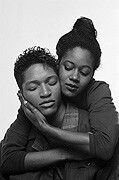
FRIDAY, March 11 (HealthDay News) — People who attach more value to their possessions may be less secure in their personal relationships than those who put less value on material goods, a new study reports.
Human beings need to feel secure, and a sense of security can come either from material goods or from supportive relationships. If people do not feel loved and accepted by others, the researchers pointed out, the importance of material items rises.
“We conducted two studies, and the basic finding in both is that if you make people feel interpersonally secure, they’ll place a lower monetary value on possessions,” said study author Margaret Clark, a professor of psychology at Yale.
“I think people consciously know very well that they don’t need everything they want to acquire or have. They don’t need to be told that. But, they may not be aware of why they do this,” she said.
“Humans are social creatures with vulnerabilities. Close relationships affords protections. For examples, infants wouldn’t survive without other people. But material possessions also afford protection and security. Humans need food, clothing and shelter to survive. So, it takes a mix of things to make you feel secure. But, if you heighten one source of security, people feel less concerned about the others,” she explained.
To confirm this theory, Clark and her colleagues from the University of New Hampshire and the University of Geneva, conducted two studies. The first included 185 people between the ages of 18 and 71; 70 of the volunteers were male.
Participants were randomly assigned to a group that was asked to write a paragraph about a time they felt supported or to a group that was asked to write about a pleasant experience at a restaurant. Then both groups were asked to place a monetary value on the blanket on their bed.
The group primed to feel supported placed an average value of $33.38 on the blanket, while the other group valued the blanket, on average, at $173.80.
The researchers then controlled the data for two extreme answers — one man in the supportive group wouldn’t provide a monetary value for his blanket, and an “outlier” in the restaurant experience group who valued his blanket at $10,000. After adjusting the figures, they found that the group that had written about being supported placed an average value of $33.38 on their blanket, while those who recalled a pleasant restaurant experience thought their blankets were worth almost twice as much — at $66.49 on average.
Since a blanket is such a personal item, and one often equated with security, the researchers wanted to see what would happen with a more generic item not associated with warmth and comfort. In this study, 98 people (30 of them males) with an average age of 21 were randomly placed in one of three groups. Each group was asked to unscramble 30 sentences, 20 of which were neutral in content. The remaining 10 sentences varied by group.
One group was asked to unscramble sentences using secure, supportive words, such as “hug,” “love,” “closeness,” “commitment” and “comfort.” Another group was asked to unscramble additional sentences filled with positive words such as “happy,” “merry,” “festive” and “victory.” The final group had to unscramble 10 additional sentences with neutral words, such as “boat,” “book,” “shoes” and “fence.”
The participants were then asked to rate the value of the pen they had used to complete the task from 25 cents to $9.75. (This was done “in the context of a supposedly separate study,” the researchers explained — an economics student who had earlier given all the participants a pen with the university’s logo as a gift for participating in the research asked them how much they would charge him to buy the pen back.)
The group primed with security-related words such as “love” valued the pen at $3.23, while those in the group primed with positive words like “victory” valued it at $4.11. The neutral group placed the pen’s value at $4.18, according to the study.
Results of the study appear in the March issue of Journal of Experimental Social Psychology.
Clark said that these findings could help experts better assist those with hoarding issues or people who compulsively shop. And, she said that it can help in day-to-day living too. “If you understand what lies behind other people’s impulses, you can better come up with a strategy to tackle that. If you have a spouse who’s buying too much, instead of arguing about spending, a compliment might work better than pointing out how you don’t need that item,” said Clark.
“The take-home point from this study is that life satisfaction involves a great deal more than the acquisition of possessions,” said Richard Morrissey, director for the Center for Psychological Services at St. John’s University in New York City. “Things provide us with a sense of security, but if we feel secure in relationships, we can place less value on stuff.”
Morrissey said therapy can help people change the way they’re thinking and aid them in understanding that they don’t need to purchase things to feel better.
“It’s like the classic glass is half-full or half-empty scenario. Two people can look at the same situation and one looks at it in terms of what they don’t have, while another sees the same situation in a different way. Don’t measure life in a pessimistic way. No one knows what the future will bring, so it’s not irrational to think the next day will be a good day,” said Morrissey.
More information
Learn more about the association between security, money and happiness from the American Psychological Association.

